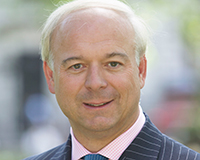 It is crucial that we understand how technology will drive change in the real estate sector so that we can adapt our strategy and ensure we are investing in growth assets and not those in the fast lane to obsolescence.
It is crucial that we understand how technology will drive change in the real estate sector so that we can adapt our strategy and ensure we are investing in growth assets and not those in the fast lane to obsolescence.
One of our investment themes at Mayfair Capital is the creative industries, which include the arts, media, publishing, architecture, design and IT software and services.
The UK has the largest creative sector in Europe, boasting its largest broadcasting hub and a leading online advertising market.
The expected growth in this sector will drive demand for business space. Thus it is important to understand what this industry looks like and what will determine its location decisions. In general, companies that are active in this sector still tend to be very small. Around 85% are defined as micro businesses, having fewer than 10 employees, and a further 12% are considered small businesses (fewer than 50 staff). Most are still located in southern England, with around 50% of jobs based in London, the South East and the east of England, but they can be found across all UK regions.
These firms have not been tied to traditional business areas but they tend to form clusters and outside southern England there has been growth in a number of creative hubs, including the Titanic Quarter in Belfast and MediaCity in Salford. This is because the creative industry relies on collaboration and good connectivity that facilitates increased information exchange and stimulates innovation. Furthermore, it has the added advantage that the networks formed between large organisations and a wide range of smaller creative firms encourages the development of local labour pools by attracting skilled people.
The best-known cluster is Tech City in east London, where the number of digital businesses has risen from 200 to 1,300 over the past three years. This growth is starting to spread across the rest of the UK, supported by formal links that Tech City has created with other tech clusters in cities such as Manchester, Birmingham and Bristol. For regional locations to capitalise on these links they need access to reliable digital infrastructure and Manchester, in particular, has seen significant investment in its digital infrastructure to support this sector.
Over time these clusters will evolve. As an area becomes established as a creative hub, rents will rise and as a result more businesses will look at more fringe locations that offer lower-cost space that still benefit from the synergies arising from being within a cluster. It is expected that TechCity will expand eastwards and northwards into Dalston, Haggerston and Hackney as rents in the Shoreditch area rise.
Despite the growth in mobile working, physical office space is considered important by these businesses. For many companies the look and feel of their offices are intrinsically linked to their brand. Furthermore, the perception that there is a growing shortage of skilled staff has resulted in an increased focus on recruitment and staff retention. Offices have become a key battleground. A company’s office location, its accessibility and surrounding amenities (supported by clustering) are all crucial to ensuring employee satisfaction and attracting the best talent.
Given the average size of businesses in this space and the importance of clustering, we have seen the emergence of the co-working business model. Co-working spaces are defined as offices or locations with a fast internet connection and usually a café or small leisure element. They offer flexible leases on small spaces to start-ups and the added benefit of networking opportunities with fellow occupiers. In some cases the space has been subsidised by a larger corporate, as at the Google campus in London.
It was recently reported that London has just as many people working for companies with fewer than 10 staff (116,000) as it does people working for companies with less than 500 (115,000), suggesting that potential demand for this style of space is strong.
James Thornton is chief executive at Mayfair Capital










